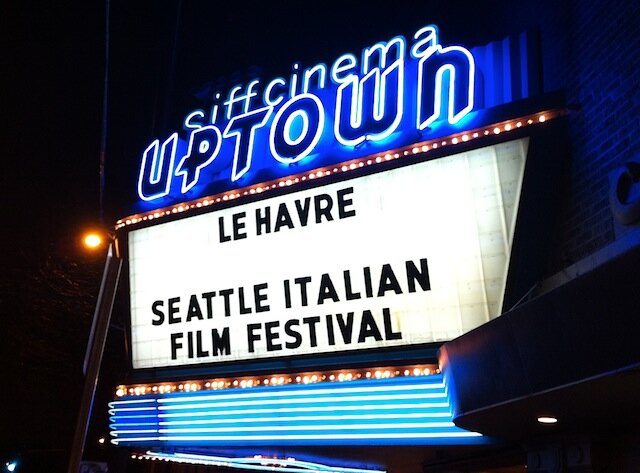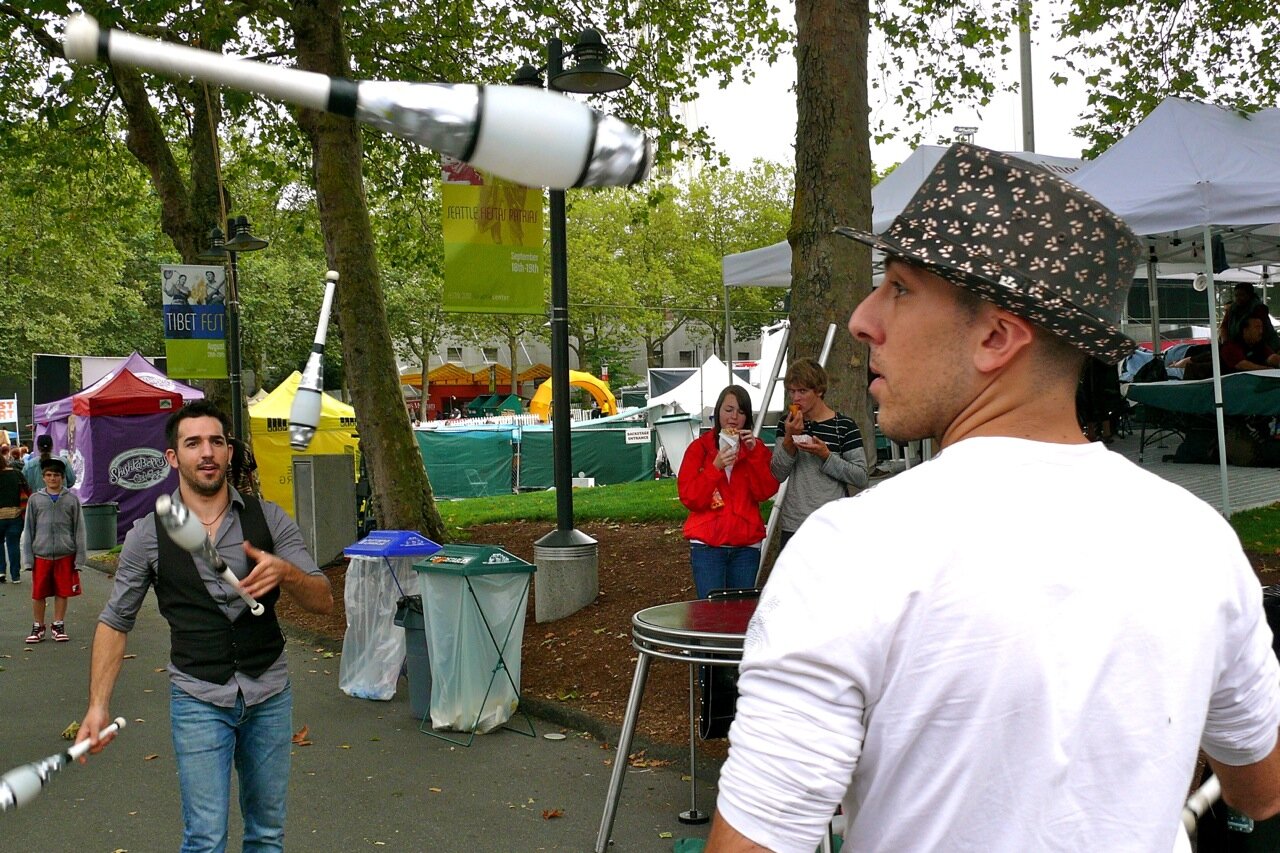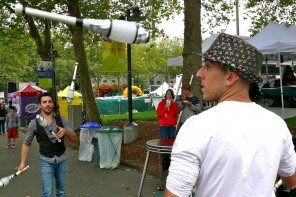
Public service announcement: The opening night of the Seattle Italian Film Festival started late, last night, because so many people were still circling the block looking for parking spots. While SIFF‘s new digs at the Uptown Theater offer tons of seats inside, they didn’t come with any on-street spots. Parking in Lower Queen Anne is a bear even when the weather’s nice–just assume that you’re going to pay for parking in a lot (here are Seattle Center-run locations), or take public transit (the Monorail is nice this time of year).
Films at the festival are $10 ($5 for SIFF members). It opened with Italy’s Oscar submission for Best Foreign Language Film, Emanuele Crialese’s immigration-and-its-discontents drama Terraferma, and closes on November 20 with Nanni Moretti’s comedy about a reluctant cardinal Habemus Papam (We Got a Pope! in my personal translation).
As you can tell from the marquee, other films are showing throughout the festival at the Uptown–the extra cinema salles make it possible for life to go on, even with the festival in progress. Le Havre, from Finnish director Aki Kaurismäki, explores immigration issues in the French port city.
While some festival films get screened twice, Terraferma, sadly, is not one of those. (Make Scarecrow get it for you.) From director Emanuele Crialese, it’s set on the island of Linosa, south of Sicily, not far from Lampedusa, where Crialese’s Respiro was set. Crialese attended the screening last night–he speaks English well, and fielded questions from the audience after the film.
For a man who claims to be making films “from the gut,” working with untrained actors, and rewriting scenes constantly in collaboration with his cast, Crialese nonetheless has created a film that, from its opening shot of a fishing boat at sea, suggests an almost classical mastery. One audience member had a question for Crialese about the film’s steadily racheting anxiety–it’s almost as if a horror film had been transposed into the key of everyday life on this little, hard-pressed island.
Crialese gives you that rarest thing these days, a taut first act, that establishes how close to the margins life is lived on Linosa–fishermen make more money “retiring” their boats, and more and more the island is shifting to a tourist-fed service economy. Young widow Giuletta (Donatella Finocchiaro) decides to rent out her house for the summer; she and her son Filippo (Filippo Pucillo) will bunk in the “garage.”
Filippo has an uncanny way of acting and sounding like he’s from a ’50s teen movie–it’s as if Italian neo-realism has holed up on this particular island.
Then the tourists and illegal immigrants appear, and it’s a volatile mix. Crialese is not disinterested; he said after the film he was interested in “solidarity.” Terraferma is not a faux documentary, but a dramatization, a hypothesis, of human behavior as ultimately generous and helpful. That’s in contrast to political machinations and the law (Italy was drawn into the recent Libyan uprising in part due to immigration concerns). You cannot stand by and let another human being drown, is how the grizzled fisherman sees it. It is not an allegory, for him.


